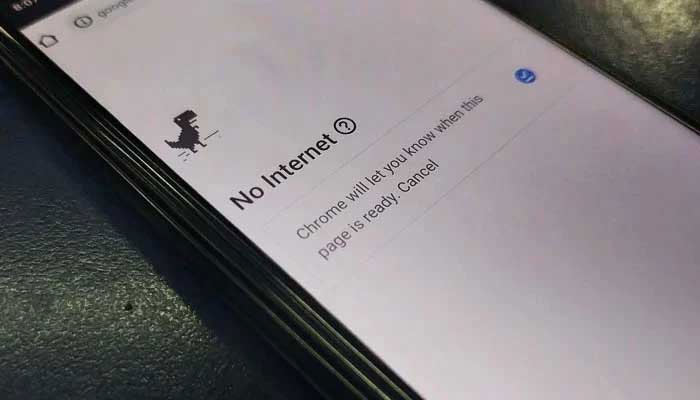
- Pakistan’s digital heartbeat is faltering, leaving millions frustrated.
- Connectivity chaos hitting hard where it hurts most, says Wispap.
- Arshad says country’s economy not built to handle such a strain.
KARACHI: Wireless Internet Service Providers Association of Pakistan (Wispap) has expressed concerns about the future of digital services in the country amid the ongoing connectivity crisis.
Pakistan’s digital heartbeat is faltering, leaving millions frustrated and disconnected, The News quoted Wispap Chairperson Shahzad Arshad as saying.
Everyday apps stall, VPNs become lifelines and a fog of uncertainty hangs over the internet. Is this about security, or are there deeper cracks in the system? While officials stay tight-lipped, the whispers tell a different story, Arshad added in his statement.
The chaos is hitting hard where it hurts the most. Freelancers — bringing in a hefty $400 million to the national exchequer — are scrambling to stay online. Traders face delayed payments, researchers hit dead ends, and students lose their learning lifelines. It is not just an inconvenience, he said adding that it is a full-blown disruption affecting lives and livelihoods.
“We understand the need for control, but at what cost? Connectivity disruptions do not just slow us down; they shake the very foundation of an already fragile ecosystem.”
Arshad said that Pakistan’s economy is not built to handle this kind of strain. “Other countries might weather these measures because their economies can take the hit. For us, it is a fast track to disconnection, not progress,” he warned.
And then there’s the VPN saga — a lifeline for many, yet tangled in red tape. “The system is like building walls without doors,” according to Arshad . “Legitimate users are forced underground, while the real vulnerabilities remain unchecked.”
So, what’s the way forward? The Wispap chairperson calls for open conversations with stakeholders, simpler systems and a return to reliable connectivity. “We need policies that make sense economically and practically,” he says. “Transparency and collaboration are the keys to clearing this digital fog.”
Pakistan’s future hinges on its ability to stay connected. For now, though, the spectre of disconnection looms large. Will it dissolve, or will it tighten its grip? The answer lies in the choices we make today, he added.

